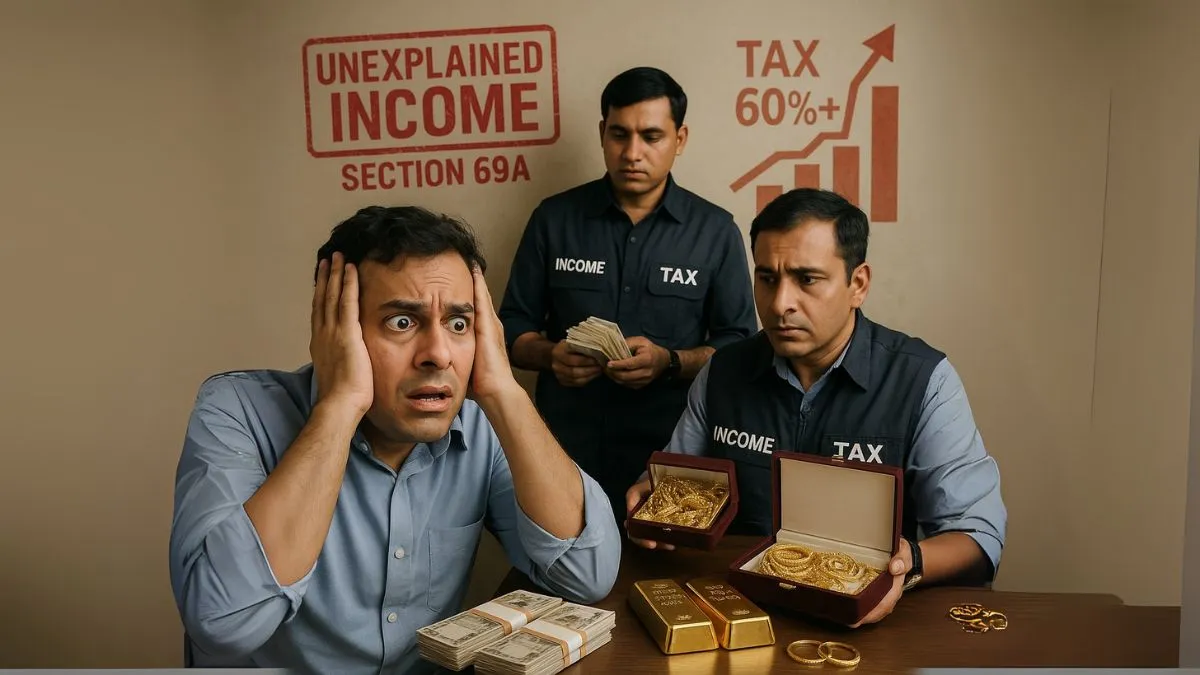
Section 69A of the Income Tax Act is a significant provision that deals with unexplained money & the value of bullion, jewellery, or other valuable articles found in possession of a taxpayer. This section empowers the income tax authorities to treat such assets as unexplained income if the assessee cannot satisfactorily explain their source.
The Income Tax Act, 1of 961 lays down various sections to ensure transparency & proper taxation of income & assets. Among them, Section 69A specifically focuses on cases where an assessee is found with cash, valuables, or assets that are not recorded in the books of accounts & for which no satisfactory explanation is provided.
What is Section 69A of the Income Tax Act?
To put it simply, Section 69A covers situations where the taxpayer has possession of money, bullion, jewellery, or other valuable articles & fails to explain how they acquired them. If the assessee is the owner of the money but cannot provide evidence of its legitimate source, the entire amount is treated as unexplained money & taxed accordingly.
This section aims to curb the accumulation & use of black money and other unaccounted wealth.
Key Features of Section 69A of the Income Tax Act:
- Applicable when an individual or business is found with unexplained money or valuable assets.
- Taxation is imposed on the value of such unexplained assets.
- The assessee must be the owner of the money or assets in question.
- If the explanation provided is unsatisfactory or absent, the value is added to the total income."
When Does Section 69A Apply?
Imagine an individual is found with a large sum of cash, gold, or jewellery but has no documentation or plausible source to justify ownership. In such cases, Section 69A of the Income Tax Act, 1961 kicks in, & the Assessing Officer has the authority to add the unexplained money to the individual’s taxable income.
This also applies to situations involving bullion, valuable articles, or property. The tax authorities don't need to prove how the income was generated—it's the responsibility of the taxpayer to explain the source.
Key Terms Explained:
- Money – Includes cash in hand, bank deposits, digital wallets or any liquid assets.
- Bullion & Jewellery – Refers to precious metals like gold, silver, diamonds, or ornaments.
- Other Valuable Article – Includes any high-value assets like luxury watches, artwork, or collectables.
- Assessee – The person in whose name the unexplained money or asset is found.
The assessee must be the owner and have the burden to prove the source. Otherwise, the income tax authorities will treat it as unexplained money under Section 69A."
Tax Rate under Section 69A:
The unexplained money or assets are taxed at the highest applicable slab rate. Additionally, penalties can be imposed in case of deliberate concealment.
For example, as per Section 115BBE, unexplained income is taxed at a flat rate of 60% plus surcharge & cess, making it extremely costly to conceal income.
Case Laws & Judicial Precedents:
Several case laws on Section 69A of the Income Tax Act have reinforced the importance of maintaining proper documentation for any income or asset. The Supreme Court judgments on Section 69A have also clarified that mere possession without explanation is enough to invoke this section.
In many instances, courts have ruled in favour of the assessee where genuine & traceable sources were provided. However, where explanations were absent, the courts upheld the addition of income under this section.
Supreme Court Judgement and Taxpayer Rights:
The Supreme Court judgement on Section 69A has highlighted that the onus lies on the taxpayer to prove the source of income. However, taxpayers have the right to contest unfair additions by providing credible documentation or challenging the assessment in appellate forums.
Real-Life Example:
Mr Sharma, a businessman, was found with unexplained cash of ₹10 lakhs during a tax raid. He could not furnish any documents showing the source of funds. Under Section 69A, the Assessing Officer added this amount to his total income, & he faced additional tax along with penalties.
Important Takeaways:
- Keep proper documentation of all high-value purchases or cash inflows.
- Declare all bank accounts, investments, jewellery, & other valuables in your tax return.
- Consult a tax expert if you receive any notice under Section 69A.
Conclusion:
In summary, Section 69A of the Income Tax Act, 1961 ensures that any unexplained cash, jewellery, or valuables held by taxpayers are taxed fairly, promoting transparency & accountability. It’s crucial to maintain accurate financial records & seek expert help in case of any doubts.
👉 If you ever receive a notice under Section 69A or wish to ensure your financial records are tax-compliant, Callmyca.com is here to assist you with expert tax consultation & hassle-free ITR filing. Don’t let your hard-earned money be at risk—click here to consult our experts today.











